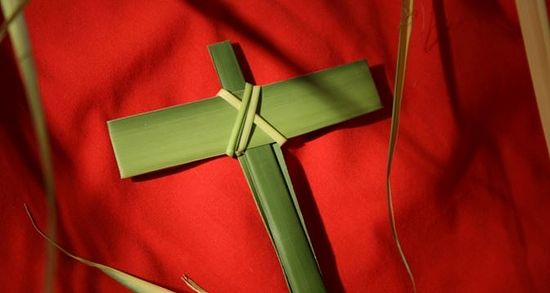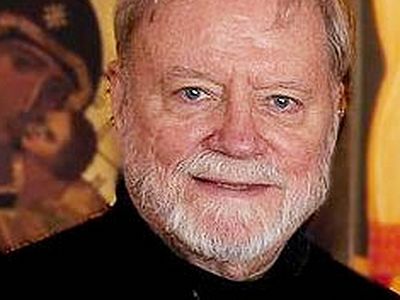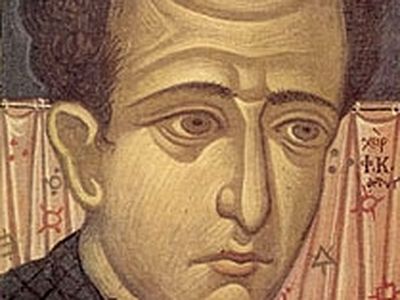Source: Preachers Institute
February 16, 2016
What have Gentiles to do with Jesus’ Hour of Glory?
The third dominical prophecy in which John employs the verb hypsoo is found in the discourse that follows the inquiry of the Greeks who wished to see Jesus:
“And I, if I am lifted up (hypsotho) from the earth, will draw all peoples to Myself” (John 12:32).
In this case, two features of its immediate context make the reference to Jesus’ death more explicit: First, this logion of the Lord immediately follows His parable of the perishing seed:
“Amen, I say to you, unless a grain of wheat falls into the ground and dies, it remains alone; but if it dies, it bears much fruit” (12:24).
Second, the evangelist himself, as though to make doubly sure the meaning is not missed, adds the explanation:
“He said this, signifying by what death He would die” (12:33; cf. 18:32).
The subsequent remark of Jesus’ enemies shows that they understand these words as a reference to His death:
“The people answered Him, ‘We have heard from the Law that the Messiah remains forever; and how can You say, “The Son of Man must be lifted up (dei hypsothenai)”? Who is this Son of Man?'” (12:34).
These references to Jesus’ coming death, moreover, pertain to the dramatic and larger setting introduced by the arrival of the Greeks. To grasp the significance of this context, we need to look at the whole passage in greater detail. It begins,
Therefore the people, who were with Him when He summoned Lazarus from his tomb and raised him from the dead, bore witness. For this reason the people also met Him, because they heard that He had done this sign. The Pharisees therefore said among themselves, “You see that you are accomplishing nothing. Look, the world has gone after Him!” Now there were certain Greeks among those who came up to worship at the feast. Then they came to Philip, who was from Bethsaida of Galilee, and asked him, saying, “Sir, we wish to see Jesus.” Philip came and told Andrew, and in turn Andrew and Philip told Jesus. But Jesus answered them, saying, “The hour has come that the Son of Man should be glorified.”
The arrival of inquiring Greeks in Jerusalem was not unusual. Indeed, the Second Temple’s “Court of the Gentiles” was designed as a place of prayer for the Gentiles—many of them, like Cornelius, “fearers of God”-who came to worship in Jerusalem on the high holy days. The notice of their arrival gives concrete support to the complaint of Jesus’ enemies,
“Look, the world has gone after Him!”
In the mind of John these Greeks represent the God-willed expansion of the People of God, a theme that the evangelist introduced earlier. Already, in the Good Shepherd parable, Jesus declared,
“And other sheep I have which are not of this fold; them also I must bring, and they will hear My voice; and there will be one flock and one shepherd” (10:16).
Then came the ironical plot/prophecy of Caiaphas,
You know nothing! Nor do you consider that it is to our advantage that one man should die for the people (laos), and not that the whole nation (holon ton ethnon) should perish (11:49-50).
John comments on the deeper significance of these perilous words:
This he did not say on his own. But, being high priest that year he prophesied that Jesus would die for the nation (hyper tou ethnous), and not for the nation only, but also that He would gather together (synagogei) God’s scattered children into one (11:51-52).
This “one,” into which Jesus is to gather God’s scattered children, is John’s designation of the Church, further symbolized in the seamless, undivided garment of which the Savior was stripped at the crucifixion (19:23-24). It is, as well, the “one” for which He prayed,
“Holy Father, in Your name, which You have given Me, them keep them, that that they may be one, even as We.”vii
And then,
I do not pray only for these, but also for those who believe in Me through their word; that they all may be one, as You, Father, are in Me, and I in You; that they also may be one in Us, that the world may believe that You sent Me. And the glory You gave Me I have given them, that they may be one just as We are one: I in them, and You in Me; that they may be made perfect in one, and that the world may know that You have sent Me, and have loved them as You have loved Me (17:20-23).
In short, the arrival of these Gentiles, who come to gather in worship with the Jews, tells Jesus,
The hour has come that the Son of Man should be glorified.
This is the “hour” of which He said to His mother,
“My hour has not yet come (2:4),
and concerning which He prophesied to the Samaritan woman,
there comes an hour—and it is now!—when the true worshipers will worship the Father in spirit and truth (4:23).
It was of this hour that Jesus affirmed,
Amen, amen, I say to you, there comes an hour—and it is now!—when the dead will hear the voice of the Son of God, and those who hear will live (5:25; cf. 5:28).
These earlier declarations that the hour is “now” should be understood in an anticipatory sense, however, inasmuch as John knew that
His hour had not yet come (7:30; 8:20).
This “hour” is the designated time of which Jesus declared,
My time is not yet present—Ho kairos ho Emos oupo paresten (7:6),
and
My time has not yet been fulfilled—Ho kairos ho Emos oupo peplerotai (7:8).
But now, with the arrival of these Gentiles, the appointed time has come. Jesus turns to prayer:
Now is My soul troubled. And what do I say? “Father, save Me from this hour (ek tes horas tavtes)?” But it was for this that I have come unto this hour (eis ten horan tavten)! Father, glorify Your name!) (12:27-28).
This prayer is as close as John comes to describing the Agony in the Garden.
Now, Jesus says, is My soul (he psyche Mou) troubled,
putting the reader in mind of His words at the Agony:
Saddened unto death is My soul (he psyche Mou) (Mark 14:34).
Indeed, Jesus refuses to make here the very prayer of which Mark wrote,
He went off a little ways and fell to the ground and was praying that, if possible, the hour (hora) might pass from Him (Mark 14:35).




